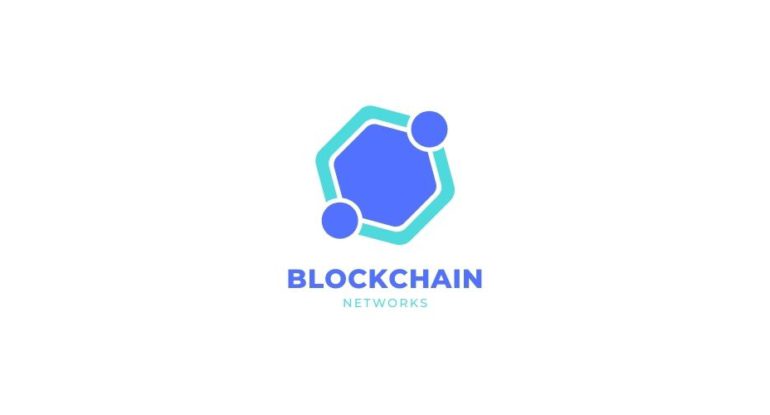What Makes These Top 5 Blockchain Networks Different?

Since the launch of Ethereum, several other Blockchain networks have evolved, each with its own set of perks and objectives. Let’s see how they compare.
Despite years of growth and enhanced protection, hackers continue to significantly impact the crypto business. In the first quarter of 2022, internet fraudsters stole about $1.3 billion in 78 cases. The issue in many cases was not with the protocols but with the hackers’ ability to deceive unwary users. However, there have been countless occasions where hackers were able to get away with money due to weaknesses and exploits. This is why we decided to compare some of the most famous and well-known blockchain networks to evaluate which ones are the best and most secure.
What are blockchain networks, and how do they work?
A blockchain network allows applications to use smart contracts and ledger services. They are, in essence, blockchains that may be utilized as development platforms for a wide range of blockchain products. They returned when Ethereum first appeared, refocusing attention away from bitcoin trading and toward the promise of blockchain, which can be used to develop almost any form of off-chain program, protocol, or service.
As a result, there are currently a plethora of Ethereum-like blockchains available, many of which claim to be Ethereum alternatives. This leads to more diversification and decentralization in the DeFi sector, which is ultimately beneficial. However, with that said, it begs the issue of which one is the greatest.
The top 5 blockchain networks are compared.
Solana
Solana is one of the fastest Ethereum alternatives. Solana has an average of 1,482 transactions per second (TPS) and near-instant processing speed at the time of writing. The project can quickly increase to 100,000 TPS, and its previous high was about 400,000 TPS when the network began to have problems.
1/ Solana was built to be an incredibly energy efficient chain.
The most recent energy impact report from @SolanaFndn found that a Solana transaction uses around the same energy as a few Google searches – 2,707 Joules, to be precise. https://t.co/5spnJt8fHl pic.twitter.com/t3v4Y2WpZu
— Solana (@solana) April 22, 2022
It charges only $0.00025 for every transaction on average. A severe issue in Solana placed $2 million in tokens in jeopardy. However, the flaw has been addressed. Due to the high entry requirements to become a node, the blockchain is considered to be relatively safe. This prevents bad actors from entering. As of February 2022, the project had 1,469 nodes.
Avalanche
“As measured by time-to-finality,” Avalanche bills itself as the “fastest smart contracts platform” in the blockchain market. According to the proposal, it can handle over 4,500 transactions per second.
Avalanche handled 1.1 million transactions on January 27th, according to a Yahoo Finance report dated January 28th, 2022. This was 96 percent of Ethereum’s load, and the average Avalanche charge was $0.23 per transaction, compared to $62 per transaction on Ethereum.
The project has 1,441 validators, according to Avalanche Explorer. Avalanche, like Solana, has had issues in the past, but it has been able to fix them since its discovery.
Smart Chain BNB
Binance’s second blockchain, BNB Smart Chain, was previously known as Binance Smart Chain. It is Binance’s reaction to the Ethereum network. It was created in order for Binance to have access to the DeFi market.
With total network usage, BNB Smart Chain (BSC) can process 160 TPS, with an average TPS of 75.5 at the time of writing. The average transaction cost on BSC is 0.0008 BNB as of April 5th, down 46.67 percent from the same time last year. For numerous months, BNB Smart Chain has charged the exact cost.
On the other hand, BSC has only 21 validators for its mainnet, each of whom had to self-delegate 10,000 BNB to obtain this position. The entry hurdle is thus relatively high, yet the number of validators is still quite low. Every 24 hours, Binance selects validators to tackle this problem.
Network Oasis
Oasis is a scalable, privacy-enabled layer-1 network that combines low gas fees, fast throughput, and safe design to create the groundwork for Web3. The project claims to be capable of processing 1,000 TPS with block durations of roughly 6 seconds.
Also, read – Blockchain And The Supply Chain Share a Future Fastened Around Trust
Oasis also claims to be 99 percent less expensive than Ethereum in terms of fees. In terms of dollar amounts, each transaction costs roughly $0.15. According to Oasis Scan, the project has roughly 186 validators, with 110 of them active and the rest dormant. While this is better than BSC in terms of decentralization, it still pales in compared to Ethereum’s 300,000 validators as of February 2022.
Polygon
Polygon, formerly known as Matic Network, is a well-organized and simple-to-use Ethereum scaling and infrastructure development platform. It has an essential component called Polygon SDK, a customizable framework that can be used to create various apps. Polygon says that its design can process up to 65,000 TPS, with average gas expenses ranging from $0.1 to $0.5.
Polygon is constructed with 100 validator slots, and in order to operate the entire node, each validator must stake 1000 MATIC tokens as collateral.
Conclusion
Solana appears to be not only the quickest but also the most scalable, cost-effective, and secure chain, based on the details supplied for all of the networks we examined. It has approximately 1,500 nodes and can quickly increase to 100,000 TPS with a maximum of 400,000. Each transaction costs a fraction of a cent.
The project had a significant bug, but it was quickly rectified. It has since done a lot of work to ensure that any future concerns are avoided, which is why we recommend Solana as one of the top Ethereum alternatives available in the blockchain market.




























































